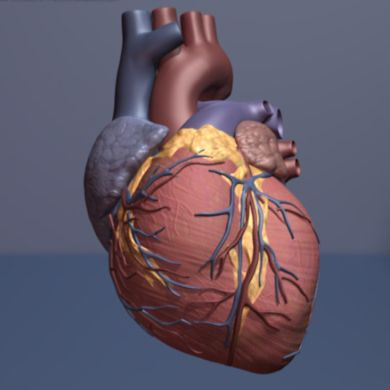Teens Diagnosed With Major Depression Or Bipolar Disorder Are At Increased Risk Of Heart Disease

Two of the most common mood disorders, major depression and bipolar disorder, affect about 10 percent of teens in the United States. A newly released scientific statement from the American Heart Association urges early monitoring of teens diagnosed with major depression or bipolar disorder for cardiovascular disease.
“The central goal of this statement is to position major depressive disorder (MDD) and bipolar disorder (BD) alongside other pediatric diseases previously identified as moderate risk for cardiovascular disease (CVD),” the authors stated in their conclusion. The statement is based on the authors’ review and analysis of recent scientific studies that reported on cardiovascular events, such as heart attacks, among young people.
A population survey of more than 7,000 American young adults, for instance, found that a diagnosis of clinical depression was associated with increased risk of death due to ischemic heart disease. Meanwhile, a suicide attempt was found to be the number one risk factor in young women, number four in young men, for a death resulting from heart disease caused by narrowed/clogged arteries. A separate Taiwanese national health insurance study — involving more than a million participants of all ages — found a link between MDD, BD, and anxiety disorder diagnoses and higher risk of IHD. Although the prevalence of IHD increased with increasing age, the excessive relative risk was greatest among those under 20.
“Although these past findings do not demonstrate causality,” the authors noted, “they are based on large samples and… provide a basis for hypothesizing that the spectrum of BD, MDD, suicide attempts, and even anxiety in adolescents and young adults may confer increased risk of subsequent cardiovascular disease and cardiovascular mortality.”
The new review of analyzed published research also uncovered teens diagnosed with clinical depression or bipolar disorder are more likely than their peers to have these cardiovascular disease risk factors:
- high blood pressure
- high cholesterol
- obesity, especially around the midsection
- type 2 diabetes
- hardening of the arteries
While “a number of behavioral and psychosocial characteristics” are disproportionately prevalent among teens and young adults with mood disorders — sedentary lifestyle, suboptimal nutrition, and tobacco smoking and substance abuse — the authors say these factors alone do not explain the increased cardiovascular risk. Similarly, mood-regulating medications do not fully explain the increased risk, since most of the teens in the studies analyzed were not taking such drugs, which admittedly can cause weight gain, high blood pressure, and other cardiovascular harms.
For these reasons, then, the authors recommend doctors and other professionals consider the two mood disorders as independent, moderate risk factors for cardiovascular diseases.
Source: Goldstein BI, Carnethon MR, Matthews KA, et al. Major Depressive Disorder and Bipolar Disorder Predispose Youth to Accelerated Atherosclerosis and Early Cardiovascular Disease. American Heart Association. 2015.



























